No matter how much I read about religion, I still don’t understand Hinduism.
It’s simply too much like India itself—so intrinsically woven into the country’s being that unless you were raised alongside the Ganges, true understanding may never come.
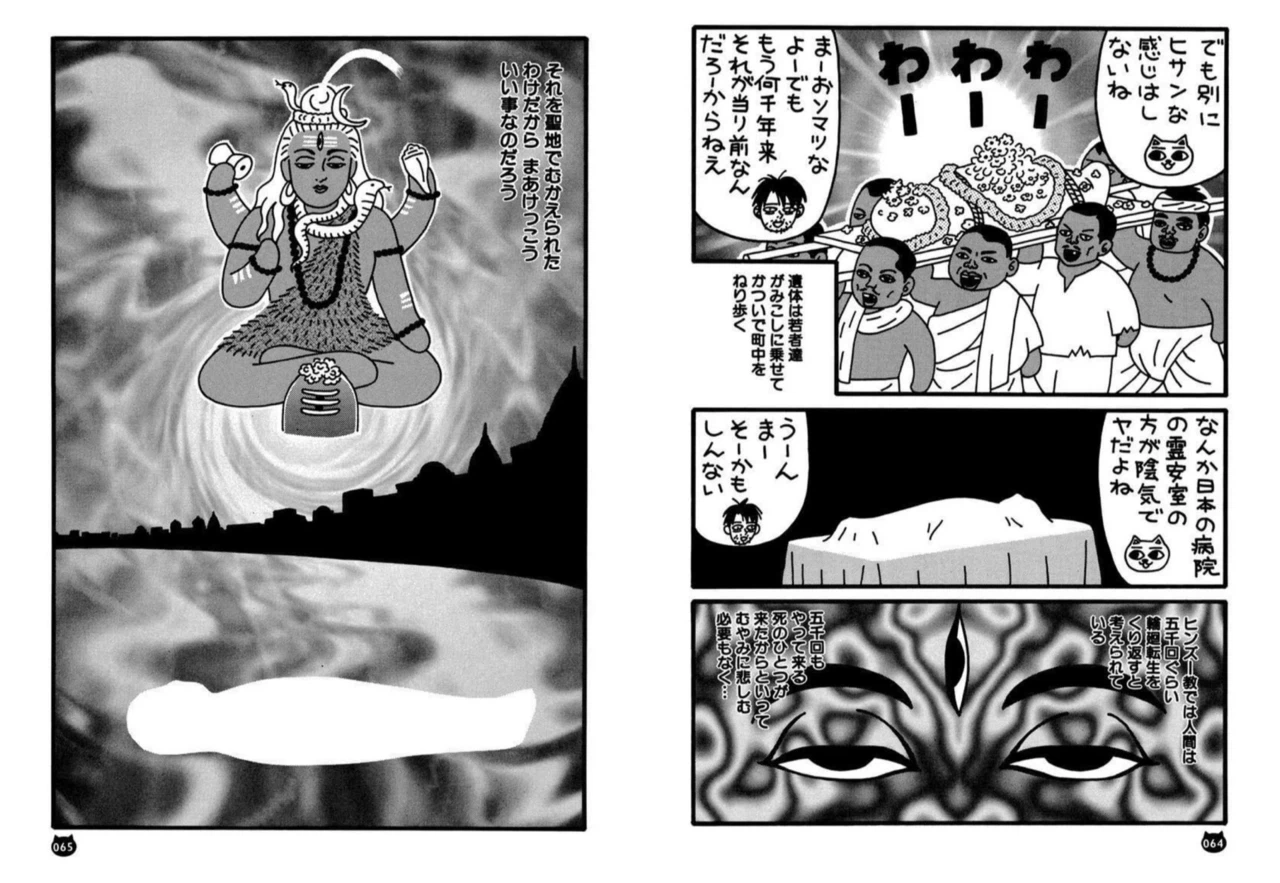
Top Right Nekojiru (right cat): But it doesn’t really feel tragic or anything. Man (left): Well, it may look crude, but it’s probably been like this for thousands of years—just normal by now. Narration: The bodies are carried on palanquins by young men and paraded through the town. Center Right Nekojiru: You know, I find the morgue rooms in Japanese hospitals way more gloomy and depressing. Man: Hmm… yeah, maybe you’re right. Bottom Right Narration: In Hinduism, it’s believed that humans go through around 5,000 reincarnations. So when just one of those many deaths comes, there’s really no need to mourn it excessively… Left Page Narration: And since it happened in a sacred place, maybe that makes it a rather fortunate thing.
I find myself rereading Nekojiru’s India Travelogue after a long while.
It’s a brilliant book—one that captures the chaos of India exactly as it is, without prettifying it or demonizing it, just laying bare what was felt.
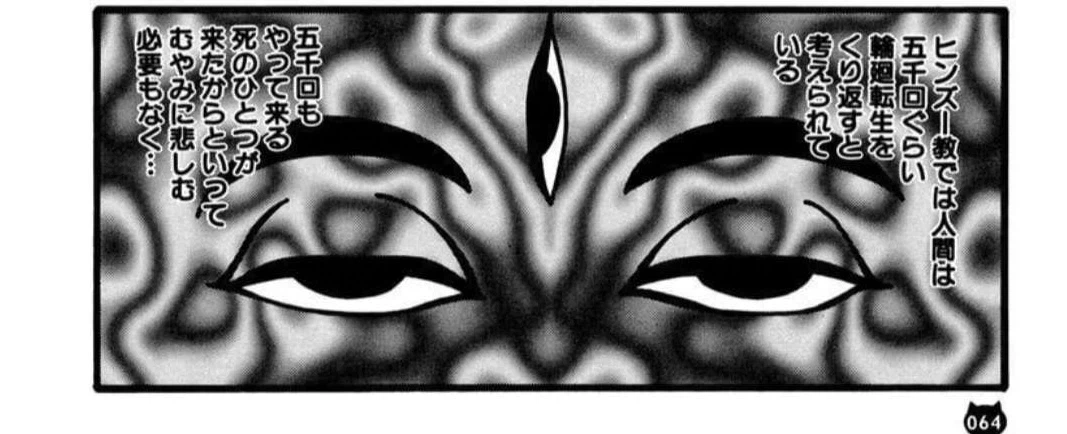
Narration: In Hinduism, it’s believed that humans go through around 5,000 reincarnations. So when just one of those many deaths comes, there’s really no need to mourn it excessively…
In Hinduism, it’s said that a human will go through about five thousand reincarnations.
So when one of those five thousand deaths comes, there’s no need to grieve too deeply.
That belief, I think, is both a source of hope and of deep cruelty.
The more I stare at it, the more vividly I begin to feel the presence of “death.”
It sends a chill down my spine—proof that, to my brain, this idea is an intensely powerful stimulus.
To Indians, of course, this is just common sense.
They are born into a caste they cannot escape.
The rich live their lives as the rich. The poor live their lives as the poor.
But still—they believe.
No matter how cruel the caste one is born into, if one lives it through to the end, the next life will begin in a better caste.
This life is just one out of five thousand.
If you did something bad in a past life, then this time around, you might end up spending your days staring at the river, smoking ganja, and waiting for death.
And when that fate ends, a new life simply begins.
Such a way of life—such a mode of thought—would never be accepted by an irreligious Japanese person.
But in India, that way of thinking is instilled from birth.
When your family, your friends, your entire environment believes in it, it doesn’t even register as strange.
Walk down to the river, and you’ll see people bathing all day.
If someone dies nearby, they’re cremated by the riverside.
A stray dog might pick up a discarded bone and run off with it.
Still, people say, “It was a blessing they could die in a holy place. Surely they’ll be born into a better caste next time.”
Everything is different.
It’s unlike Christianity. It’s unlike Islam. It’s unlike Buddhism.
The scale is overwhelming.
Hinduism.
They revere those giant elephant-headed statues more than anything else.
As I studied religion, I gradually started to believe—just a little—in the idea of the soul.
Eventually, I came to accept that this life, this existence, is a kind of stage for polishing that soul.
And yet… I still don’t know where the soul goes after death.
I can’t even imagine it.
Judgment after death, heaven and hell, reincarnation—I don’t have the faith to truly grasp any of it.
To be honest, sometimes God feels to me like a machine built by a higher intelligence.
It’s complicated.
Maybe life is just this: brooding endlessly over these things, trying to forget about the reality of death as long as possible.
And then, at some point, finding yourself certain—quietly, naturally—about what comes after.
Learning to accept death.
That’s what it means to be alive, I think.
If someone could say, “There is nothing after death. Not even the sense of returning to the soil”—
If they could truly believe that—then perhaps they, too, are a kind of devout follower.
A believer in nothing.
As for me, I can’t bring myself to deny the world after death.
But what if—
What if there really is a vast current of souls, flowing on without end,
and I’m just living through one five-thousandth of it right now?
That thought sends a shiver through me.
It’s terrifying.
And yet…I feel like one day I might intuitively arrive at that idea—without needing logic at all.
And if that day comes, then so be it.
We’ll meet again, in the next life.
Maybe the next me won’t be autistic.
Maybe he won’t think about death or religion at all.
Maybe he’ll just lie beside the Ganges, smoking ganja, dozing through his days.
If you ever see that version of me—
leave a few rupees by his side.
I’ll use them to buy books. That’ll be my whole life.
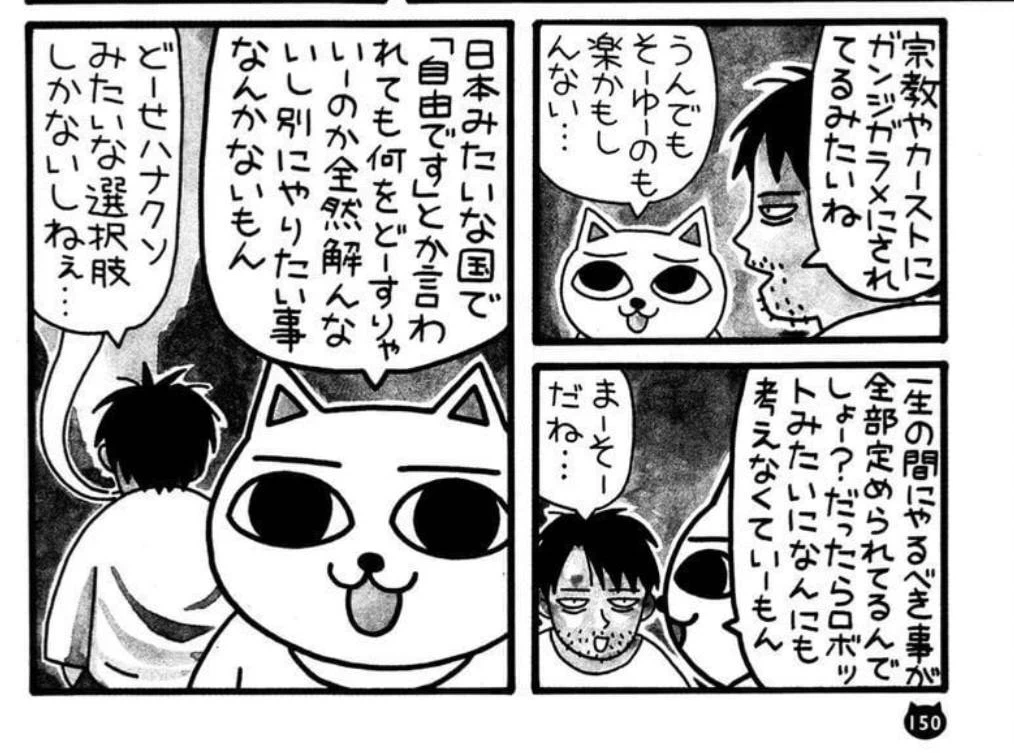
Top Right Man(right): Seems like they’re totally bound by religion and the caste system, huh? Nekojiru: Yeah… but maybe that kind of life is easier in a way. Bottom Right Nekojiru: I mean, if everything you’re supposed to do in life is already set, then you don’t have to think about anything—like a robot. Man: Well… yeah, that’s true… Left Nekojiru: In a country like Japan, even if they say “you’re free to do what you want,” I have no clue what I’m supposed to do. It’s not like I have anything I actually want to do either. Man: Yeah, either way, the choices are all crap to begin with…
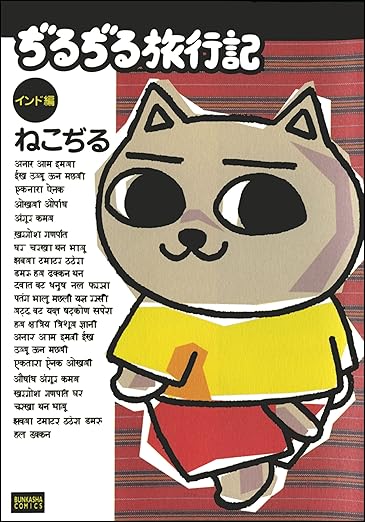

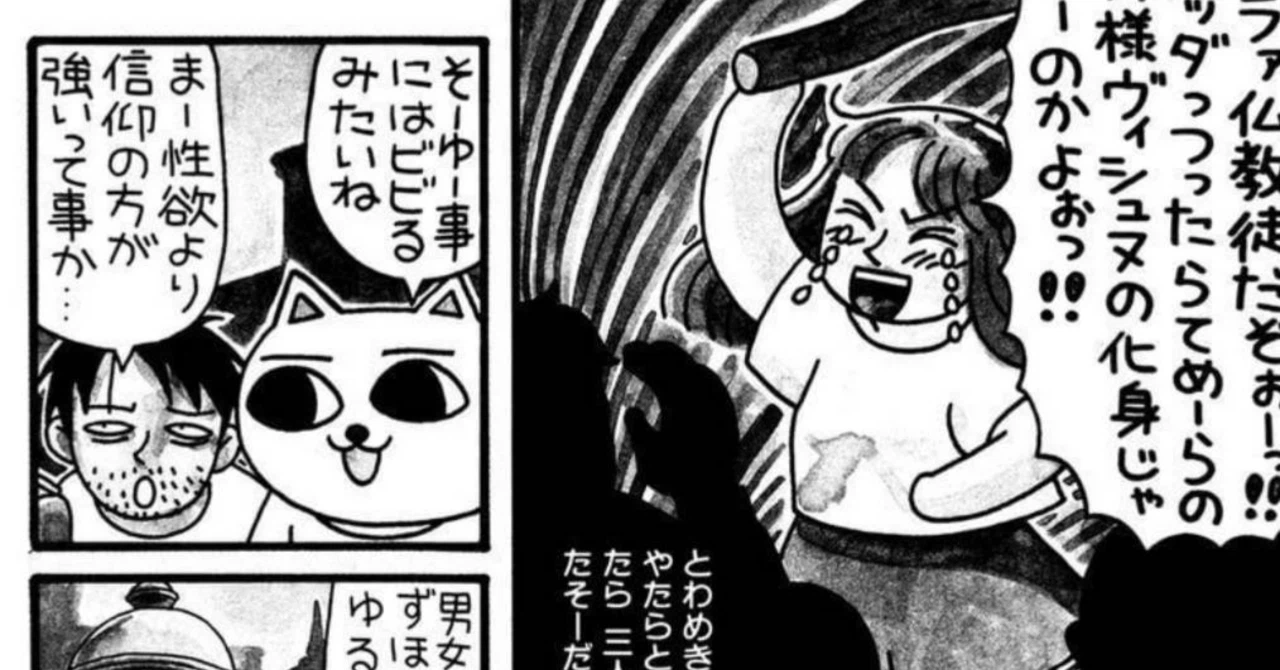

Comments (3)
Leave a comment